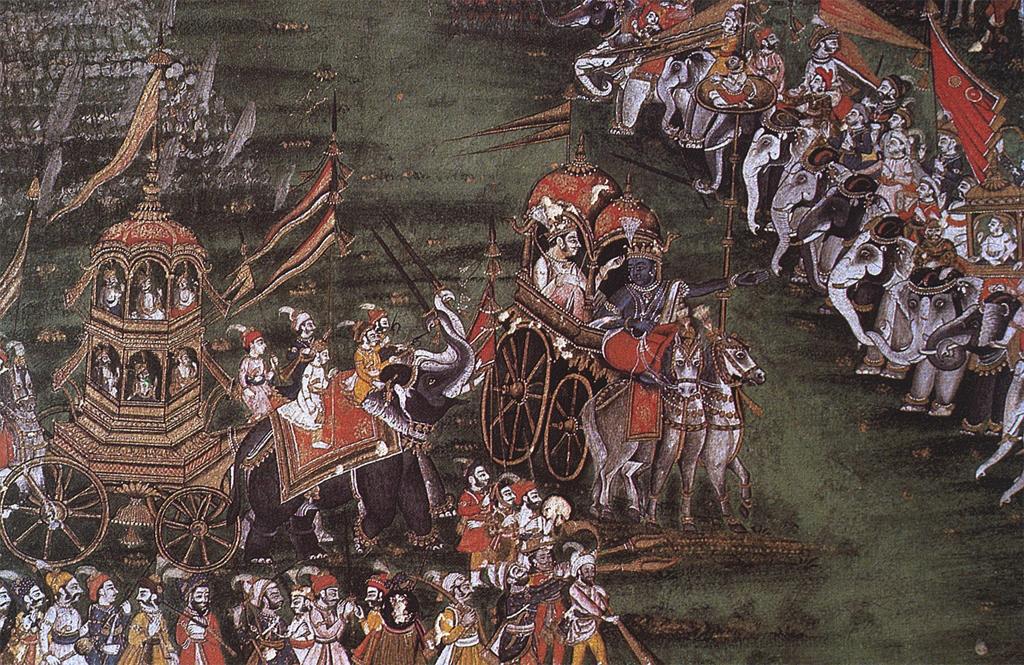
Arjuna and his charioteer Krishna pause before the battle at Kurukshetra, where Krishna delivers the discourse of The Bhagavad-Gita.
Earlier this week, Prof. Emily Hudson—a specialist on Religion and Literature—introduced faculty and students in CC102 to the world of The Bhagavad Gita.
For years we have heard about the “dilemma” that Arjuna faces as he stands with his charioteer Krishna between two armies who are preparing to destroy each other. Should he fight in a battle that will lead to the destruction of his friends and family, or should he drop his bow and withdraw from the battle? What is Arjuna’s dharma? What is the “right” thing for him to do?
Prof. Hudson argued in her lecture that Arjuna actually doesn’t face a dilemma. Along with his brothers and his family, Arjuna already knows that he has done everything he can to avoid the battle, and the battle must go on. What stops him is his feeling of grief, a feeling that clouds his vision and makes his mind reel. Krishna responds by teaching Arjuna how to see, not from his own particular point of view, but from the point of view of “Time,” in which everyone is born and lives and finally passes away. Krishna’s point about the destructive and creative cycle of the cosmos is conveyed in the revelation of Krishna’s divine form (a phenomenon called theophany) and in Mahabharata 1.1.188-190:
Time ripens the creatures. Time rots them. And Time again puts out the Time that burns down the creatures. Time unfolds all beings in the world, holy and unholy. Time shrinks them and expands them again. Time walks in all creatures, unaverted, impartial. Whatever beings there are in the past will be in the future, whatever are busy now, they are all the creatures of Time—know it and do not lose your sense.
The question posed by Prof. Hudson’s lecture is how this change in Arjuna’s perspective makes it possible for him to be free from grief and throw himself back into the battle.
*
NB: The video below contains the theophany scene from a serialized version of the Mahabharata made for TV, episode 74. Click here to see another depiction of this revelation.

One Comment
sudhir posted on October 8, 2014 at 2:13 am
Pro. Hudson has a valid point.
I think the dilemma that Arjun faced was more an emotional one than moral or ethical.
On my blog, I have compared Arjun’s reaction with Yudhishthir’s to Dron’s decapitating by Dhrushtadyumna. I hope it is ok to post the link here rather than write it all over again.
http://riddlesinmahabharat.blogspot.in/